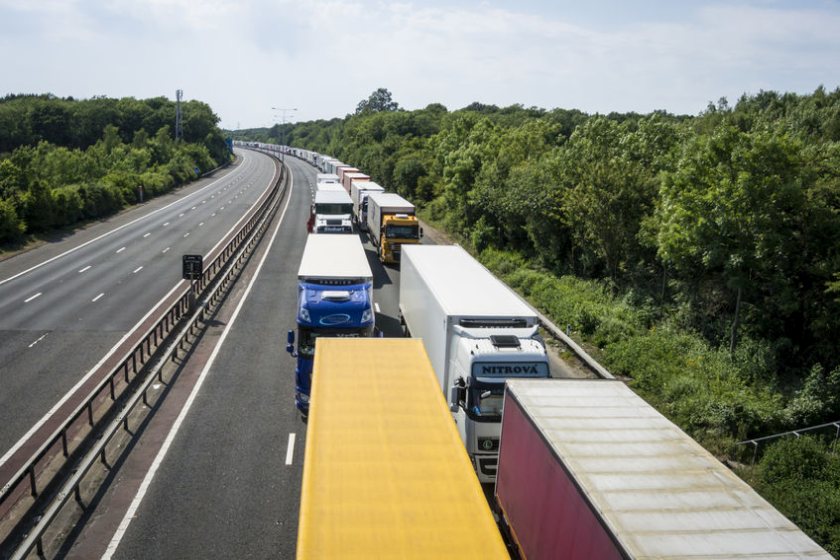
The introduction of controls for EU agri-food imports at British borders will be postponed, the government has announced.
The post-transition package of customs procedures to control imports from the bloc into Great Britain has a new start date - in six months time.
Pre-notification and export health certification for animal products, due to start from 1 April, will now not be required until 1 October 2021.
Certification for low-risk plant and plant products will be required from 1 January 2022, the government said on Thursday (11 March).
Physical checks at the border will not take place on a range of agri-food products and high-risk plants until 1 January 2022.
And physical checks on live animals and low-risk plants and plant material have been delayed until March 2022
The move comes amid reports that Border Control Post infrastructure in key GB ports is not ready for the April deadline.
The government has blamed Covid-19 pandemic and the disruption associated with it for the reviewed timeframes.
Since the end of the transition period, on 1 January 2021, the UK’s agri-food sector has been struggling with the additional costs and burdens that moving goods to the EU now entails.
Exporters have complained of additional costs and financial losses due to products being turned back or held up at the border.
The NFU said it was 'frustrating' that the government was not taking a similar approach to the treatment of imports coming into Great Britain from the EU.
"Today’s announcement means that EU producers will maintain access to the UK market relatively burden-free for a considerable amount of time," NFU President Minette Batters said.
"It is crucial that we achieve a level playing field with pragmatic checks on imports and exports as quickly as possible."
However, she said the NFU recognised that for certain food products this extension was a necessary step to ensure supermarket shelves remained well stocked.
For example, there are some fruit and vegetables that can’t be grown in the UK or that won’t be in season or widely available.
“Live animal imports for breeding will not require checks at Border Control Posts until March next year, which is a pragmatic solution whilst there are still no UK facilities able to host them at the border," Mrs Batters added.
"We will continue our discussions with ports in both the UK and EU that would be able to suitably support this trade to try to ensure it can continue."
There also remains outstanding issues that farming industry groups want the UK and the EU to resolve as part of ongoing relationship discussions.
They say more needs to be done to address the burdens on exporters to the EU, including the digitalisation of outdated paperwork requirements for health and organic certificates, and streamlining physical and administrative checks at the border.
Numerous industry groups, including the NFU, also want the government to urgently address the continued ban on exports of UK seed potatoes.
What is the new timetable?
The following is the government's revised timetable for the introduction of import controls:
• Pre-notification and export health certification for animal products will not be required until 1 October 2021, and for low-risk plant and plant products until 1 January 2022.
• Physical checks at the border will not take place on a range of agri-food products and high-risk plants until 1 January 2022. These will be carried out at Border Control Posts.
• Physical checks on live animals and low-risk plants and plant material will not take place until March 2022. These will be carried out at Border Control Posts.
